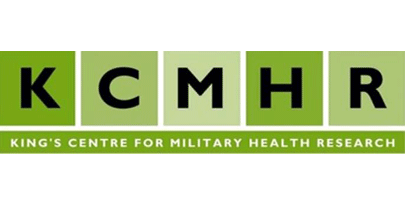The Porton Down Veterans Cohort Study: An update
The Porton Down Veterans Cohort study was set up in 2002 to address concerns about the long-term health of military personnel who were exposed to chemical agents as part of the ‘Service Volunteer Programme’ at Porton Down, UK between 1941 and 1989.
The cohort has just been updated to include new data on deaths and cancers. The origins of this unique dataset, what data is available, and the findings so far are described in our recently published Cohort Profile – highlights of which are described below.
Who is in the study?
The cohort comprises two groups of military veterans: 18,400 ‘Porton Down veterans’, who attended Porton Down between 1941 to 1989, and a comparison group of 17,800 similar veterans who did not attend Porton Down.
Veterans were identified from experiment books at Porton Down, and military personnel records. The information contained in these documents was then used to link records with National Health Service (NHS) registry data on deaths and cancers – 85% of veterans have been successfully followed-up.
What data has been collected?
Demographics and service characteristics – for example, sex, date of birth, pace of birth, branch of military, military unit, rank at enlistment, age at enlistment, and duration of service)
Data on chemical exposures – Over four-hundred chemical exposures were identified from experiment books, including vesicants, nerve agents, irritants, vomiting agents, incapacitants, choking agents, herbicides, and antidotes. For some chemicals, we collected additional information on dose, how the chemical was administered (e.g. injection, inhalation), whether protective equipment was used (e.g. clothing, barrier creams), and acute biological effects (e.g. pupil dilation and skin blistering).
Death and cancer outcomes – Dates and cause of death and type of cancers – obtained primarily from NHS central registry data.
Findings from the first phase
During the first phase of the study, veterans were followed-up for deaths and cancers until December 2004. Overall, Porton Down veterans had a 6% higher rate of mortality compared to veterans who did not attend Porton Down, although there was no difference in rates of cancer incidence between the two groups. For specific causes of death and types of cancer, Porton Down veterans had higher rates of death from infectious and genitourinary diseases, and external causes (accidental, violent deaths, including suicides); likewise, for cancers, Porton Down veterans had higher rates of in-situ neoplasms, and ‘neoplasms of uncertain or unknown behaviour’.
The second phase
In 2018, the Medical Research Council awarded funding for a second round of data collection to re-examine the original research question but with fifteen years of additional data on deaths and cancers, and to identify additional uses of the cohort. The findings from the second-phase will be useful because there is a plausible and on-going risk of exposure to chemical agents in civilian, military and emergency service populations in the UK and internationally, yet the long-term health effects of low-dose exposure to chemical warfare agents are largely unknown.
The cohort has now been successfully followed-up for deaths and cancers up to December 2019 – and analysis is currently underway.
Why is the data special?
The Porton Down Veterans study is the largest and best-documented dataset with chemical warfare agent exposures, globally. It is the only cohort with detailed information on chemical exposures, and is of exceptionally high quality compared to other sources. The cohort benefits from an exceptionally long follow-up, low attrition, and is also an uncommonly large collection of older veterans – an understudied population.
What next?
Applications for funding are underway to link the cohort with additional NHS datasets, which will provide novel information on other physical and mental health conditions in older veterans – for example, respiratory and cardiovascular diseases, and depression and post-traumatic stress disorder.
Want to know more?
The Porton Down Veterans study is a collaboration between King’s Centre for Military Health Research and Lancaster University – additional collaboration is welcomed to make the best use of this unique cohort.
To find out more about the Porton Down Veterans Study, and for a list of previous publications, visit the study website.
Headline photo from Defence Imagery website published under Open Government Licence UK MOD © Crown copyright 2021
